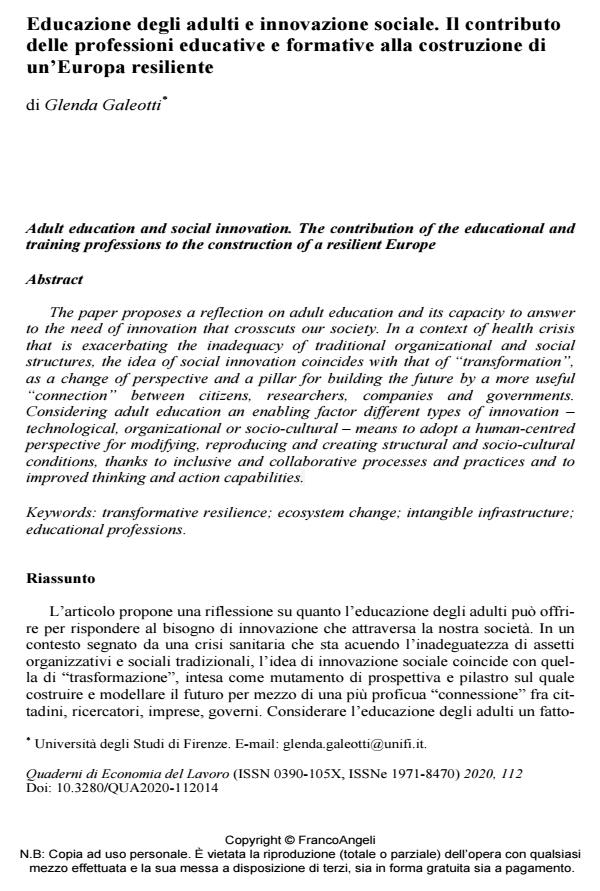Adult education and social innovation. The contribution of the educational and training professions to the construction of a resilient Europe
Journal title QUADERNI DI ECONOMIA DEL LAVORO
Author/s Glenda Galeotti
Publishing Year 2021 Issue 2020/112
Language Italian Pages 14 P. 215-228 File size 180 KB
DOI 10.3280/QUA2020-112014
DOI is like a bar code for intellectual property: to have more infomation
click here
Below, you can see the article first page
If you want to buy this article in PDF format, you can do it, following the instructions to buy download credits

FrancoAngeli is member of Publishers International Linking Association, Inc (PILA), a not-for-profit association which run the CrossRef service enabling links to and from online scholarly content.
The paper proposes a reflection on adult education and its capacity to answer to the need of innovation that crosscuts our society. In a context of health crisis that is exacerbating the inadequacy of traditional organizational and social structures, the idea of social innovation coincides with that of "transformation", as a change of perspective and a pillar for building the future by a more useful "connection" between citizens, researchers, companies and governments. Considering adult education an enabling factor different types of innovation - technological, organizational or socio-cultural - means to adopt a human-centred perspective for modifying, reproducing and creating structural and socio-cultural conditions, thanks to inclusive and collaborative processes and practices and to improved thinking and action capabilities.
Keywords: Transformative resilience; ecosystem change; intangible infrastructure; educational professions.
Glenda Galeotti, Educazione degli adulti e innovazione sociale. Il contributo delle professioni educative e formative alla costruzione di un’Europa resiliente in "QUADERNI DI ECONOMIA DEL LAVORO" 112/2020, pp 215-228, DOI: 10.3280/QUA2020-112014